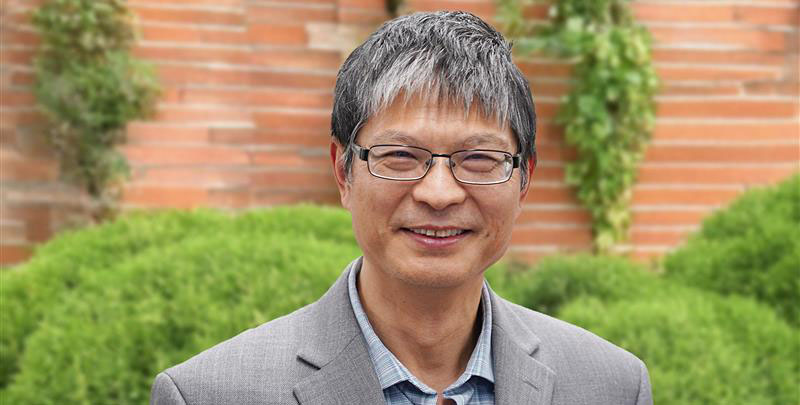Reading and Writing DNA
The President's Lecture Series Featured Life Technologies Chairman and CEO, Greg Lucier.

In the next five years every child born in America will have its DNA sequenced at birth, according to Greg Lucier, Chairman and CEO of Life Technologies. Speaking to 200-plus guests at the SDSU President’s Lecture Series, Lucier explained how genetic sequencing has changed the world and what advances are being made that will revolutionize personal health care and more.
"We think it’s the 21st century stethoscope,” said Lucier, explaining that by reviewing the genetic sequencing of an individual, a doctor can better diagnose and treat a patient. "We think DNA sequencing will be the frontline protocol to understanding what's going on with your body."
Since the Human Genome Project launched in 1990, sequencing technology has made tremendous advancements. Researchers spent the better part of a decade and more than $3 billion to decode the first human genome. The latest innovations will soon allow a technician to decipher a human genome in a few hours, for as little as $1,000.
Experts believe genome sequencing will soon be as common as childhood vaccinations, and will allow people to make diet, lifestyle and medical choices based on that information. Knowledge of a person’s genome will allow specialists to customize medical treatments and drugs for that patient.
“There are more than 900 cancer drugs in development right now. Eventually doctors will have a huge inventory from which to choose how to treat specific mutations found in your DNA. And that’s just cancer. Ultimately we will find that many of the diseases that affect us will have DNA at its core.”
An evolving economy
Lucier explained that genetic sequencing also has created a completely new industry, just in the last decade.
“It’s interesting to see how our economy is evolving,” Lucier said, showing a picture of a Life Technologies building in Pleasonton, Calif. where DNA writing research and development is taking place. “In the next ten years you will see many more factories like this doing this type of development. We would have never seen this ten years ago.”
Lucier explained that DNA reading and writing can be used for a variety of applications, from health care, to farming, to forensics. But he was quick to point out that companies working in this area also need to be responsible and understand that there are still ethical and moral questions which need to be addressed.
“This technology is happening at an incredibly rapid pace. It is going to have incredibly powerful impacts in our society. And it raises questions about how you handle it in the most ethical way.”
About Greg T. Lucier and Life Technologies
Gregory T. Lucier is the Chief Executive Officer and Chairman of the Board at Life Technologies. Lucier fosters a culture of excellence and applies his more than 25 years of strategic management at Life Technologies in his endeavor to shape an era of personalized medicine in which researchers can efficiently read, write and edit DNA for humanity’s benefit. Lucier previously served as a corporate officer at GE Healthcare and on the Board of the Sanford Burnham Institute, and currently serves on the Board of Directors at Synthetic Genomics, Inc., CareFusion Corporation, Rady Children’s Hospital and the California Healthcare Institute. He received his B.S. in Engineering from Pennsylvania State University and an M.B.A. from Harvard Business School.
Life Technologies is a global biotechnology company that is committed to providing the most innovative products and services to leading customers in the fields of scientific research, genetic analysis and applied sciences. With a presence in more than 180 countries, the company's portfolio of 50,000 end-to-end solutions are secured by more than 5,000 patents and licenses that span the entire biological spectrum -- scientific exploration, molecular diagnostics, 21st century forensics, regenerative medicine and agricultural research. Life Technologies has approximately 10,000 employees and had sales of $3.8 billion in 2012.
About The President's Lecture Series
The President's Lecture Series is just one example of how the university engages the San Diego region, a key initiative of The Campaign for SDSU. Whether it’s supporting programs that contribute directly to San Diego's growth or building academic programs to prepare for the region’s future, SDSU is an important community partner.



